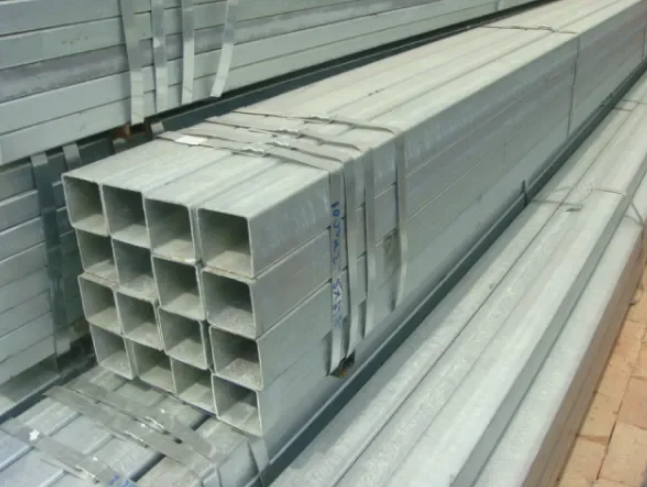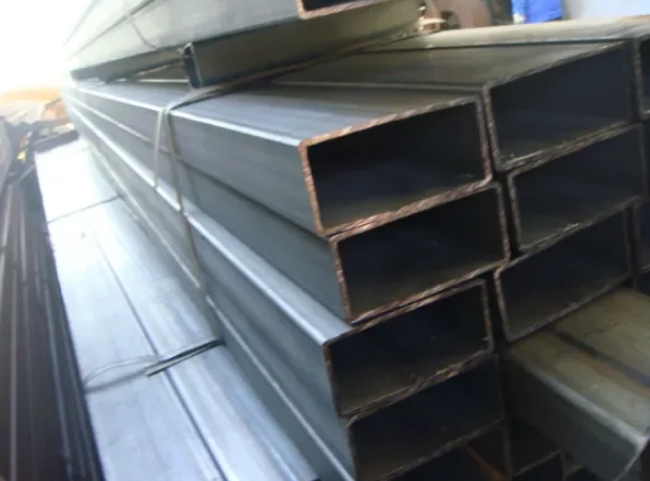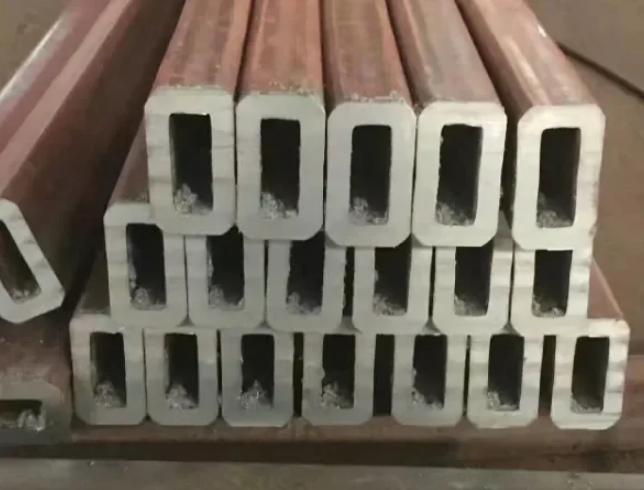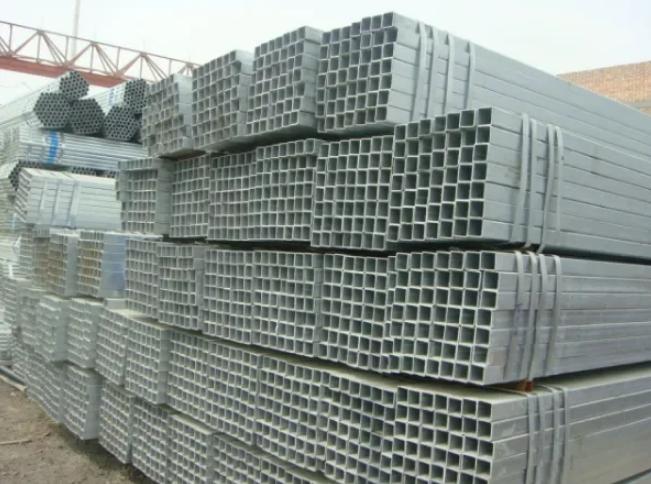An In-Depth Exploration of Rectangle Tubes:
Industrial Standards Governing Rectangle Tubes
Rectangle tubes, widely recognized as pivotal components employed across an extensive array of industries—including, but not limited to, construction and transportation—are required to conform to rigorous industrial standards. These standards are in place to ensure that the tubes exhibit the essential qualities of durability, safety, and overall quality. Frequently cited among the standards that govern the production and application of these tubes are ASTM A36, ASTM A500, EN10025, and EN10255. Each of these standards has been meticulously crafted to define the physical characteristics, chemical composition, and mechanical properties that must be possessed by rectangle tubes to be deemed compliant.

In the United States, ASTM A36 and ASTM A500 are prominent as the dominant standards. ASTM A36 is particularly significant for carbon structural steel, specifically when the steel is intended for welded construction applications. In contrast, ASTM A500 outlines the requirements for cold-formed welded and seamless carbon steel structural tubing, which encompasses round, square, and rectangular profiles, catering to a wide range of structural needs.
In Europe, standards such as EN10025 and EN10255 enjoy widespread recognition. EN10025 specifies the technical delivery conditions for non-alloy structural steels, rendering it indispensable for projects that demand high strength and durability. On the other hand, EN10255 pertains to non-alloy steel tubes suitable for welding and threading, which are essential characteristics for systems designed to transport liquids and gases.
The adherence to these rigorous standards is crucial, as it ensures that rectangle tubes are endowed with the necessary strength, durability, and resilience required for their intended applications. Whether deployed in industrial maintenance, construction projects, or as components in transportation equipment, compliance with these standards guarantees reliable and safe performance, meeting the high expectations set by industry professionals.
Achieving Both Compliance and Cost-Effectiveness with Rectangle Tubes
Rectangle tubes, widely favored across various industries, are selected not only for their adherence to demanding industrial standards but also for their ability to offer a cost-effective solution across a broad range of projects. Suppliers such as Cangzhou Shenlong Pipe Manufacturing Co., Ltd. excel in providing a diverse array of rectangle tubes, each capable of fitting different budgetary constraints while maintaining a high level of quality.

The dual capability of rectangle tubes to satisfy both industrial standards and budgetary requirements is largely attributed to efficient production processes and the versatile materials from which these tubes are fabricated. Rectangle tubes can be made from various materials, including stainless steel, galvanized steel, and mild steel, each presenting distinct advantages in terms of cost, corrosion resistance, and mechanical properties.
For example, stainless steel rectangle tubes are renowned for their exceptional resistance to corrosion, making them particularly well-suited for environments with significant exposure to moisture or chemicals. Although initially more expensive, the long lifespan and minimal maintenance needs often justify their cost over time, rendering them a cost-effective choice in the long run.
Galvanized rectangle tubes offer another economically viable option. These tubes, coated with a protective layer of zinc, serve as a barrier against corrosion, making them especially suitable for outdoor applications where harsh environmental conditions are a concern. Meanwhile, mild steel (MS) rectangle tubes represent the most affordable alternative, frequently utilized in situations where significant strength is required, but the risk of corrosion is minimal.
By judiciously selecting the appropriate material and type of rectangle tube, industries can strike an optimal balance between complying with required standards and maintaining cost-effectiveness, making rectangle tubes an appealing option for a wide range of applications.
Key Characteristics of Rectangle Tubes
Rectangle tubes, recognized for their distinctive combination of strength, versatility, and ease of manipulation, derive these characteristics from their unique box-shaped configuration. This particular shape endows rectangle tubes with a level of strength and rigidity that surpasses other structural shapes, such as angles or channels, making them indispensable in applications where load-bearing capacity and stability are of paramount importance.
A critical attribute of rectangle tubes is their exceptional strength-to-weight ratio. The hollow nature of the tube contributes to a structure that offers substantial strength while keeping weight to a minimum, a quality that is especially beneficial in applications where weight reduction is essential. This includes the construction of transportation equipment, truck beds, and trailers, where reduced weight not only enhances overall performance but also contributes to improved fuel efficiency by reducing the vehicle's overall weight.
Furthermore, the ease with which rectangle tubes can be fabricated is another significant feature. These tubes can be readily welded, cut, formed, and machined, allowing them to be customized to meet the precise requirements of any given project. Whether used in the construction of frames, supports, or enclosures, rectangle tubes can be easily adapted to fit specific dimensions and shapes, making them an extremely versatile choice for manufacturers and builders alike.
The wide range of available finishes and coatings further amplifies the functionality of rectangle tubes. For example, galvanized coatings provide additional protection against rust and corrosion, thereby extending the lifespan of the tubes in challenging environments. Meanwhile, stainless steel finishes offer superior corrosion resistance and an aesthetically pleasing appearance, making them ideal for applications that require both functionality and visual appeal.
Diverse Applications of Square and Rectangle Tubes
Square and rectangle tubes, integral to a multitude of applications across various industries, are valued for their strength, versatility, and ease of use, rendering them an indispensable choice for projects that demand reliable and durable structural components.

Industrial Maintenance
In the realm of industrial maintenance, rectangle tubes are employed to create robust frameworks, supports, and enclosures. Their inherent ability to endure heavy loads and resist deformation makes them ideally suited for deployment in harsh industrial environments. Whether reinforcing existing structures or constructing new ones, rectangle tubes provide the requisite strength and durability necessary to ensure long-term reliability.
Transportation Equipment
The extensive use of rectangle tubes in the manufacturing of transportation equipment, such as truck beds, trailers, and frames, is a testament to their high strength-to-weight ratio. This attribute is particularly advantageous in this industry, allowing for the construction of components that are both strong and lightweight. This dual benefit not only enhances the durability of the equipment but also contributes to improved fuel efficiency by reducing the vehicle's overall weight.
Construction and Structural Applications
Within the construction sector, rectangle tubes serve as fundamental structural elements in buildings, bridges, and various infrastructure projects. Their capacity to bear significant loads while maintaining stability makes them an ideal choice for constructing frames, supports, and columns. Additionally, the ease with which they can be fabricated allows for quick and efficient assembly on-site, thereby reducing construction time and associated labor costs.
Varieties of Rectangle Tubes
Rectangle tubes, available in several types, are designed to fulfill specific needs and applications. The selection of material and finish plays a critical role in determining the suitability of a particular rectangle tube for a given project.
Stainless Steel Rectangle Tubes
Stainless steel rectangle tubes, celebrated for their outstanding resistance to corrosion and aesthetic appeal, are particularly well-suited for environments where exposure to moisture, chemicals, or extreme temperatures is a concern. Their sleek appearance also makes them a preferred choice for applications that require both functional performance and visual appeal.

Galvanized Rectangle Tubes
Galvanized rectangle tubes, distinguished by their protective zinc coating, effectively prevent rust and corrosion. This characteristic makes them an ideal choice for outdoor applications or environments where exposure to the elements is unavoidable. Commonly used in construction, agricultural machinery, and other settings where durability is crucial, galvanized tubes offer a reliable and long-lasting solution.
Mild Steel (MS) Rectangle Tubes
Mild steel rectangle tubes, representing the most cost-effective option, provide a favorable balance of strength and affordability. Widely utilized in scenarios where corrosion resistance is not the primary concern but where strength and durability remain essential, mild steel tubes are frequently employed in general fabrication, frames, and structural supports, offering a practical solution for a wide range of applications.
Final Thoughts
Rectangle tubes, with their unique combination of strength, versatility, and cost-effectiveness, are indispensable components across various industries. By adhering to stringent industrial standards and offering a broad range of material options, rectangle tubes are capable of meeting the diverse demands of applications spanning from industrial maintenance to transportation and construction.
Suppliers such as Cangzhou Shenlong Pipe Manufacturing Co., Ltd. play a pivotal role in providing a wide selection of rectangle tubes, ensuring that customers can find the precise product to meet their specific needs. Whether the requirement is for the corrosion resistance of stainless steel, the durability of galvanized steel, or the affordability of mild steel, there is a rectangle tube suited to every project. As industries continue to advance, the need for high-quality, reliable rectangle tubes is expected to remain robust, further solidifying their status as essential components in numerous applications.






